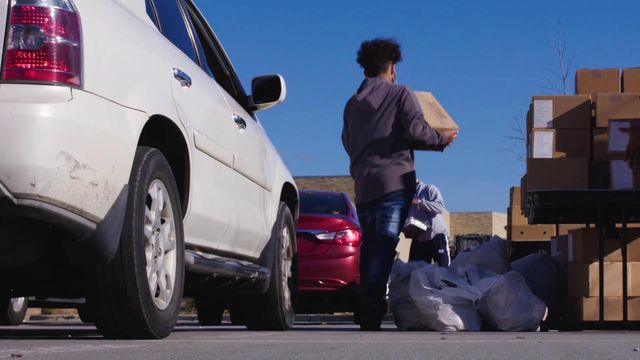How United Way of the Greater Triangle is supporting the Triangle nonprofit community throughout COVID-19
Through resources like their Rapid Response Fund, United Way is providing nonprofit support that's needed to recover and stabilize following COVID-19 across all four Triangle counties.
Posted — UpdatedBusiness and school closures, remote work, supply chain shortages — the impacts of Covid-19 have left many communities and individuals in need. For non-profits, there's been an overwhelming increase in demand for their services.
Around the Triangle, United Way of the Greater Triangle jumped right in at the beginning of the pandemic and launched its Rapid Response Fund, which ultimately raised and distributed $1.6M to Triangle nonprofits through the help of thousands of donors. As the effects of the pandemic are still sending waves through communities, United Way is continuing to support nonprofits doing much-needed work.
"For our neighbors and community members who are on the edge of crisis, this pandemic is far from over — the challenges that they're experiencing continue, and the United Way is going to be there for our community to help them recover," said Amy Strecker, UWGT's board chair and Duke Energy's director of foundation strategy. "The pandemic highlighted challenges that have always been there for our community, but really drew attention to some of them in a new way. I've been so impressed with how United Way has pivoted and refocused their mission to eradicate poverty and increase social mobility through the power of partnerships, and those changes have enabled the organization to activate during the Covid pandemic and push funds into Triangle nonprofits."
Triangle Family Services, a nonprofit that works closely with United Way, provides programs and resources for families, including mental health, financial stability and family safety. Over the past two years, they've had a significant increase in demand.
"The last year has been a tsunami. You've got people who see the storm receding, so they're putting on sunscreen and thinking the worst is over. But for many families hit by that tsunami, I don't know that we've even gotten to the tipping point yet. Families are just trying to survive," said Alice Lutz, CEO of Triangle Family Services. "As things start opening up, the need for mental health services is only going to increase. Families have experienced trauma and crisis, and they're in need of services."
According to Lutz, there was a six- to eight-week waiting period for TFS-provided mental health services — and the demand hasn't slowed down. With the help of United Way, TFS has been raising funds and increasing awareness of the need for their services.
Other services TFS has to offer include housing assistance, supervised visits, financial counseling and anger management. By providing multi-faceted stabilization and relief, TFS helps families stay safe, stay together and save money.
In order to meet increasing demand, the organization has plans to expand — which can be easier said than done.
While there may be challenges along the way, United Way is helping to support that growth.
"Over the next few years, we hope to scale for capacity sustainably as we continue to meet the needs and the growing demands of our most vulnerable communities — it's not a one-and-done situation. The second piece is hiring talent, making sure that we have enough clinicians to meet the needs and training new talent," said Lutz. "We serve on around 40 committees and task forces, because we're involved in so many different pieces of mental health and outreach. Another part of our growth is figuring out how we can be at all these tables and still get our work done."
"Our staff isn't here for the money — we're here because we have passion for our community. If you have a roof over your head, a bed, food in your belly, consider yourself lucky, consider yourself healthy, rich, and consider giving to a nonprofit organization so we can keep meeting the demands of the families that have none of these things."
Related Topics
• Credits
Copyright 2024 by Capitol Broadcasting Company. All rights reserved. This material may not be published, broadcast, rewritten or redistributed.






